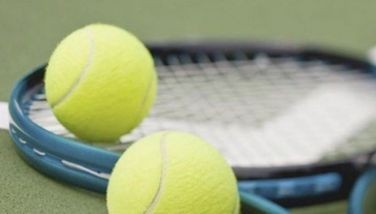Olympism challenged
We got reactions from several readers about our column several weeks ago (“Finally: Mixed gender sports in Palaroâ€), one of which was an email from Victor (Toto) Africa, president of the Philippine Fencing Association, Inc. (PFA).
Last year we had a chance to engage Africa in a lively discussion during the conference “Sports and Government†at the National Center for Public Administration and Government at UP.
In his email, Africa acknowledged our point that the organizers of the Singapore Youth Olympic Games (YOG) included mixed-gender sports, the first time such an inclusive concept was practiced in elite sports. Africa also stated that the organizers did other things at the YOG geared towards the “propagation of Olympismâ€. Africa stressed that everyone in the Olympic movement should be working for Olympism the goal of the Olympics. Africa however asked, “I wonder how many in the Olympic movement even know what Olympism is aboutâ€.
Africa suggested that the Philippines could take a cue from what Singapore did and we should get the Department of Education, through Br Armin Luistro, FSC, Secretary of Education, to have the schoolchildren exposed to Olympism and its core values as Singapore did before the YOG even producing and distributing manuals on how to promote the concept at all levels. Africa however, had a caveat: “Of course, this means that first the teachers themselves should be exposed to Olympism because they can’t teach or pass on what they don’t haveâ€.
With the DepEd taking the lead, it is hoped that Olympism can then pervade the Palarong Pambansa and eventually, the rest of Philippine sports. Africa adds that character development and value formation can become the focus of sports as the essence of Olympism and not just to win medals. And he says, that what better way to start than with school children – In this way, if I may add, the phrase “starting them young†is properly used and not given more meaning than originally intended and misused by adults who want to superimpose their values and agenda in children’s and youth sports.
Africa says that DepEd doesn’t have to start from scratch: there are at least two reference materials and activities. He stresses that Singapore had an “Olympic Education Programme†(OEP) in preparation for the YOG which had three Olympic Resource Packs for Singapore students, one each for the primary, secondary and pre-university levels covering ages seven to 19. Africa offers to share these packs called “Living Olympism†with DepEd. The International Olympic Committee has also its own “Teaching Values (An Olympic Education Toolkit)â€. Africa concludes his email by stating that perhaps Olympism and the values it promotes can be included in the K-12 program.
The question arises, what is Olympism? Some think of Olympism as a philosophy that promotes pure excellence in sports, a belief reinforced by the fact that the modern day Olympics stands for commercial success, it being the world’s biggest single gathering of nations in any human endeavor. It is the most watched event on global television and as such is a perfect venue for commercial promotion and marketing of products. But Olympism, in its purest sense is far from commercial Olympics.
Referring to the website www.ttoc.org can be very instructive. In an article entitled “What is Olympism?â€, we draw the following insights – and these insights are consistent with what we have personally advocated all these years: that sport is for all and sport has a crucial role to play in human development.
Olympism is not a system, it is a state of mind – it can permeate a wide variety of modes of expression and no single race or era can claim to have the monopoly of it, according to Pierre de Coubertin, founder of the modern Olympics.
Olympism is a philosophy of life, exalting and combining in a balanced whole the qualities of body, will and mind. Blending sport with culture and education, Olympism seeks to create a way of life based on the joy found in effort, the educational value of good example and respect for universal fundamental ethical principles.
This ideal was proclaimed with fervor at the festivals celebrated every four years by the ancient Greeks at the Olympic Games in which they devoted themselves to the pursuit of harmonious development not only of the body but also of man’s cultural and artistic qualities.
Leaving the website momentarily, believe it or not, because of crass commercialism, formidable challenges have been met in achieving the goal of Olympism. That goal is to put sport at the service of the harmonious development of man, with a view to encouraging the establishment of a peaceful society concerned with the preservation of human dignity.
Doping in sport (the objective of which is to enhance athletic performance in unethical ways) has been one of the major roadblocks to achieving the Olympic ideal or Olympism but that is an altogether different matter which we’ll discuss in future columns.
- Latest
- Trending

























